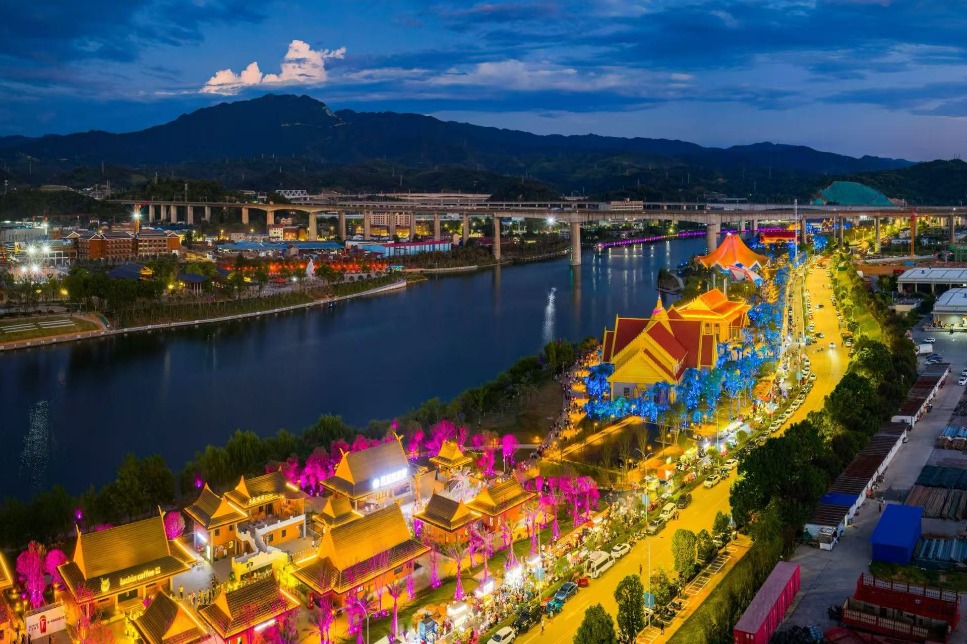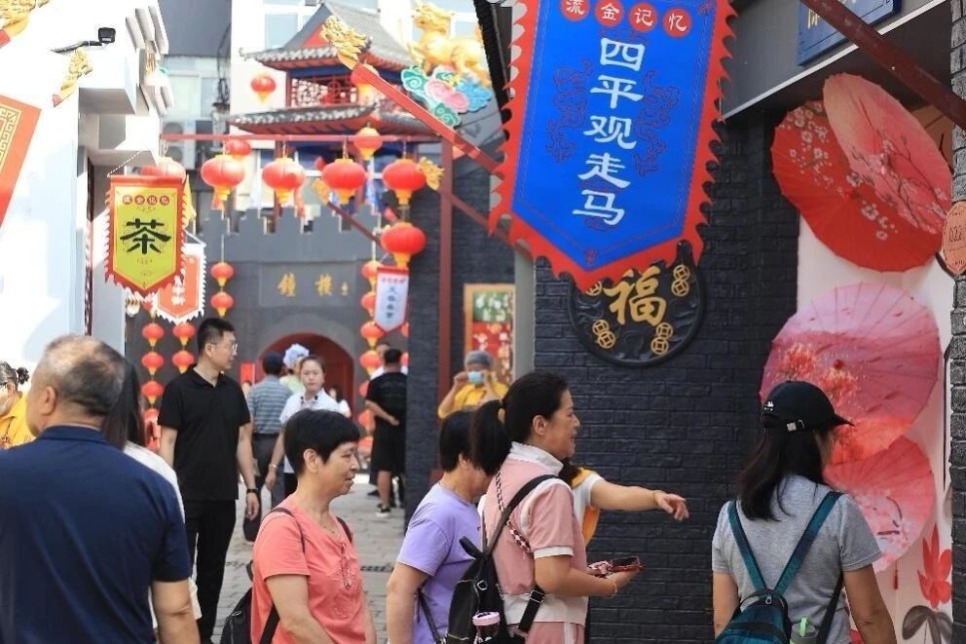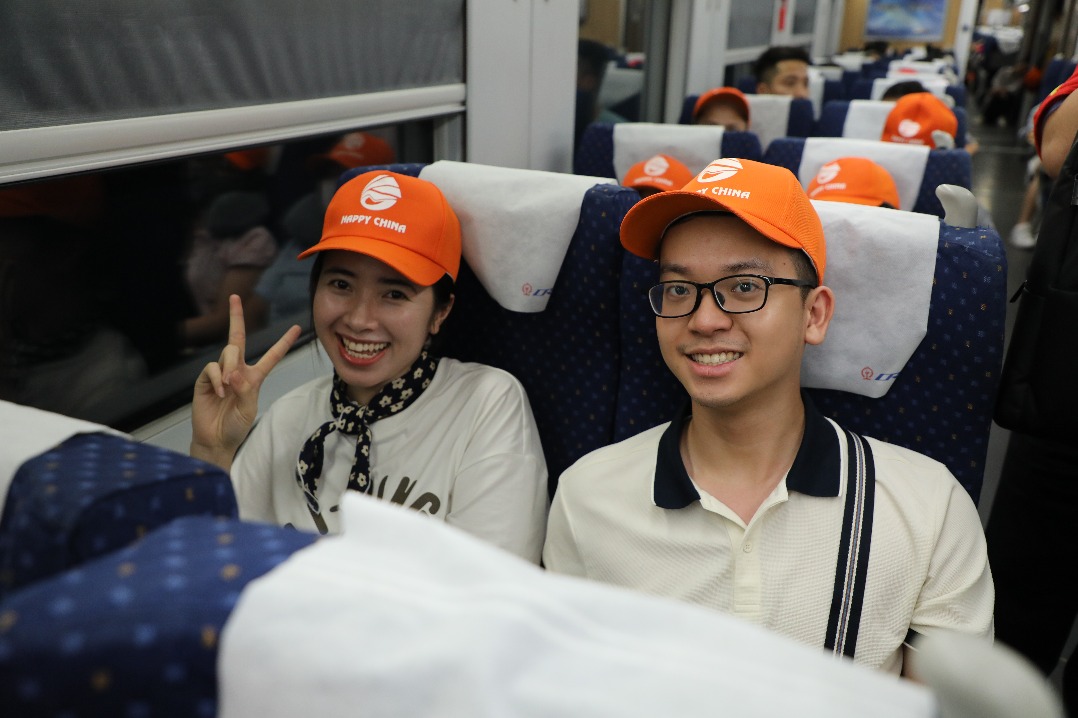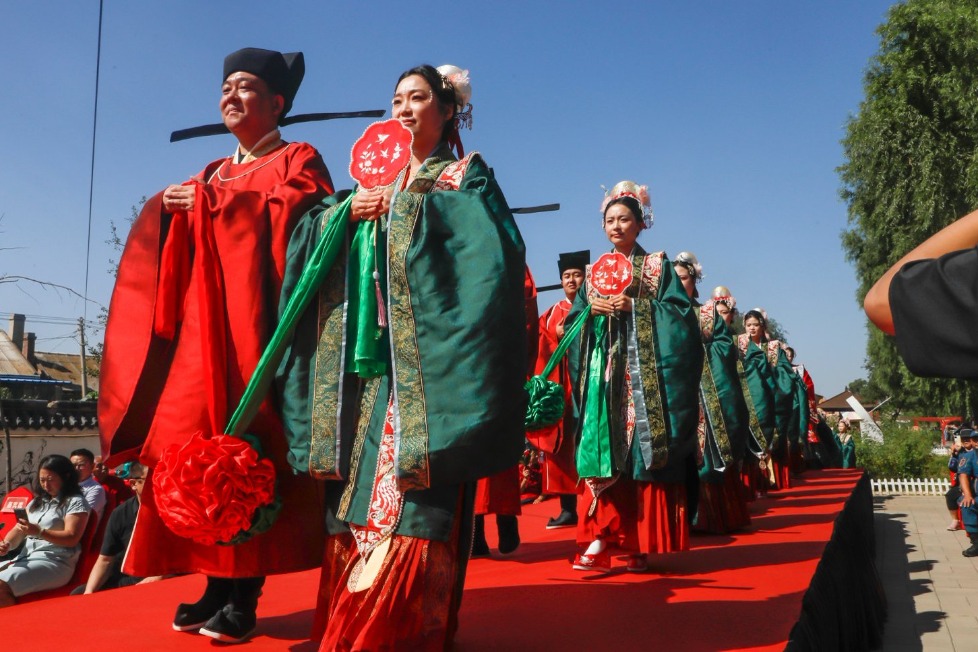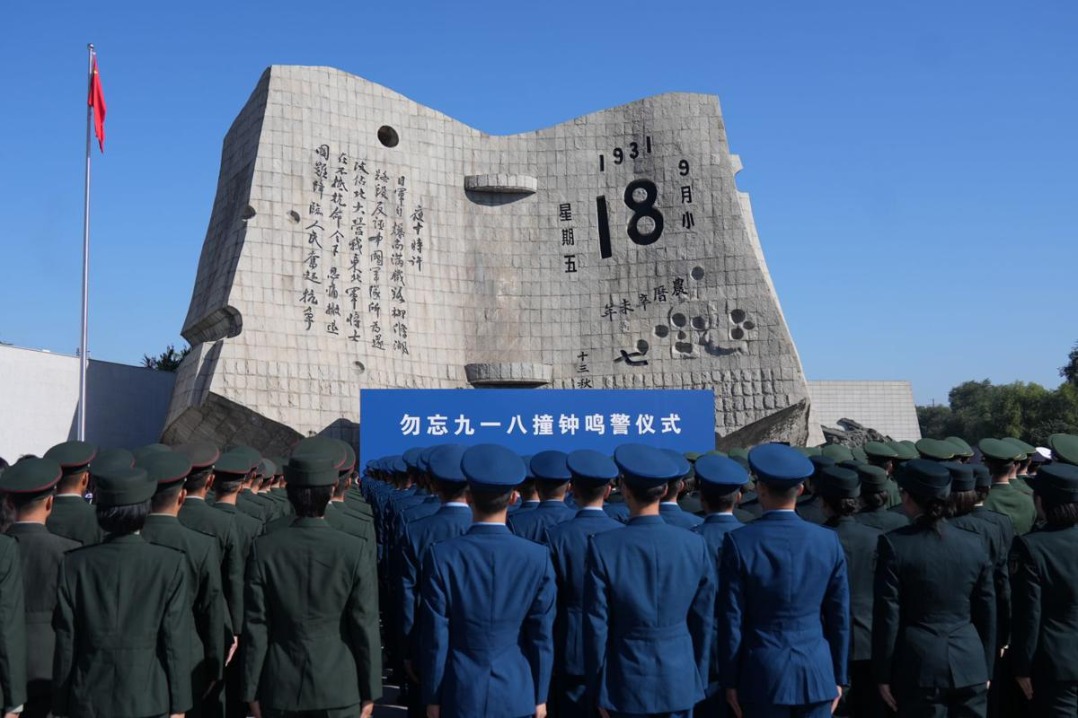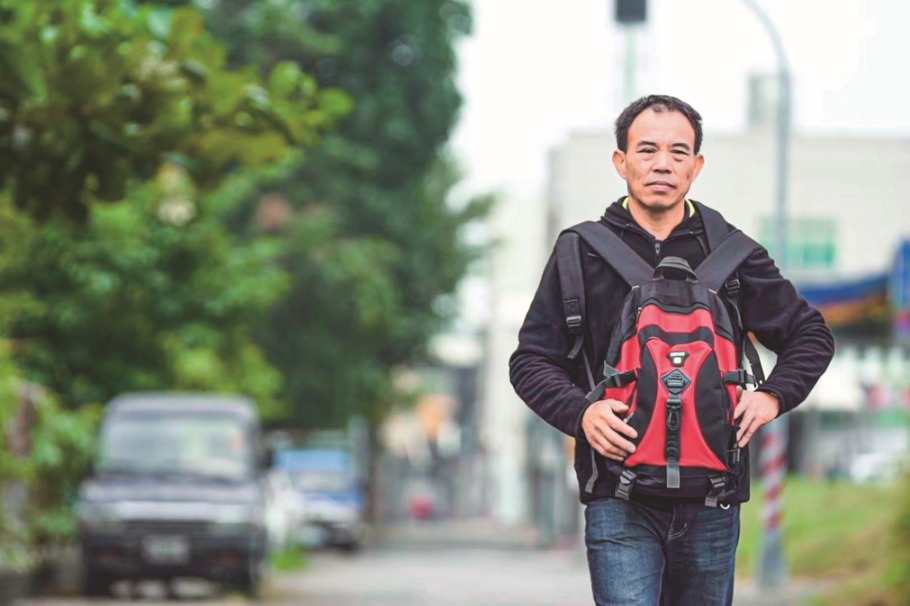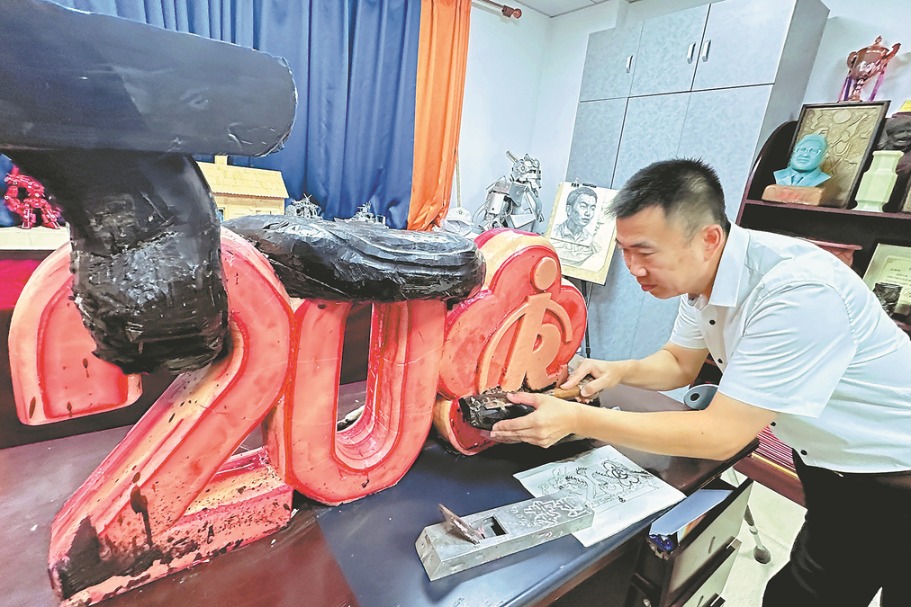Karamay marks decades of sustaining energy security

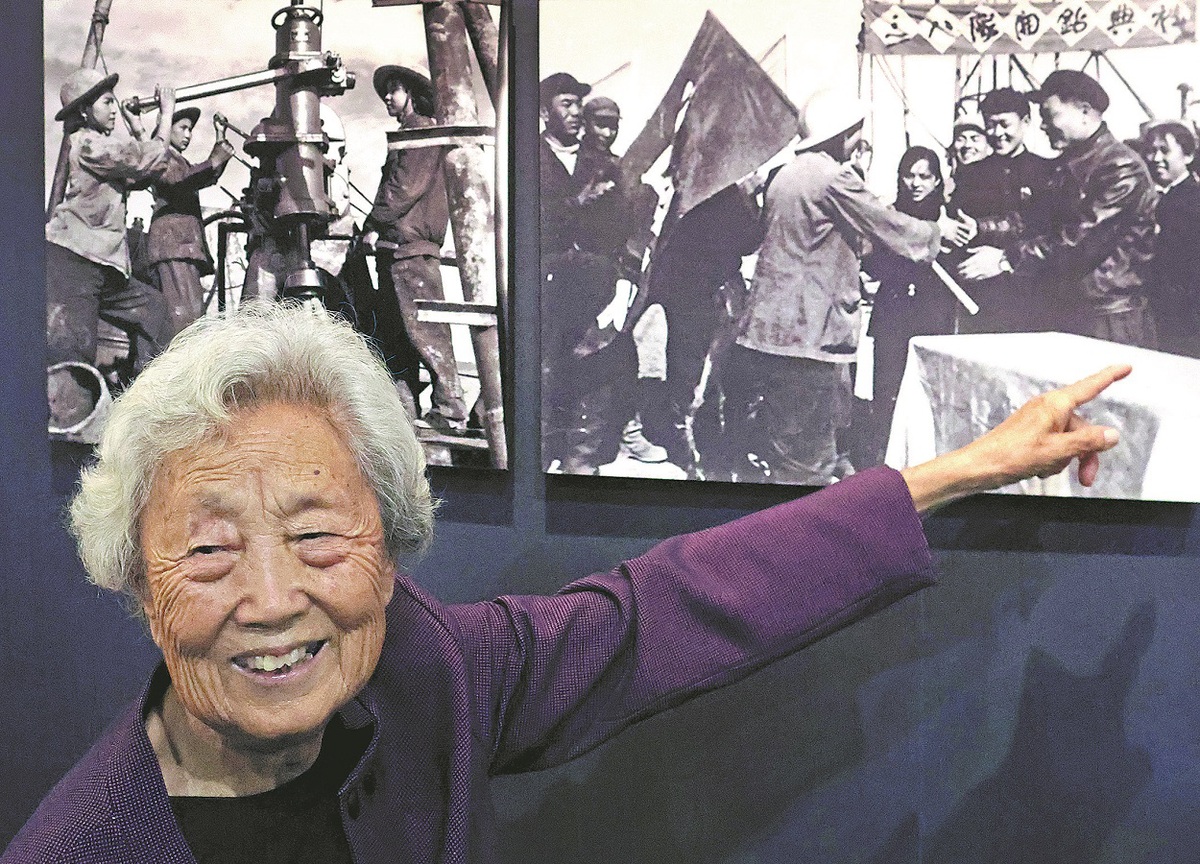
Even after seven decades, 88-year-old Wu Shuhua still remembers the day the first well of the Karamay oilfield was discovered in the Xinjiang Uygur autonomous region.
On Oct 29, 1955, the first well in Karamay gushed industrial oil, marking the official discovery of New China's first large oilfield. At the time, the country's annual crude oil output was only 435,000 metric tons, meeting barely one-third of domestic demand, with consumption largely reliant on imports.
When news of the Karamay oilfield spread nationwide, it inspired millions of people, including Wu, a then bank employee in Urumqi. She later became the political instructor of the March 8 Women Drilling Team of the Xinjiang Petroleum Administration Bureau.
"At that time, I worked for a bank in Urumqi," Wu said during a recent visit to a Karamay city museum. "When I got the news, my excitement was indescribable."
In 1958, Wu and her husband applied to work in Karamay, responding to the country's call for large-scale development of the newly founded oil city. Wu was appointed as a political instructor of China's first female drilling team.
As an industrial city, whose economy was centered around oil, Karamay faced harsh conditions — with extreme aridity and sparse vegetation.
"The biggest challenge was overcoming the harsh natural environment," Wu said. "The drilling team was stationed at the Gobi Desert, where the summer heat was unbearable and drinking water was scarce. A team member once suffered frostbite on her ears while trying to listen in on a machine's operation during a bitterly cold winter."
The female drilling team had 42 members from eight ethnic groups, including Han, Uygur and Kazak. The oldest was 29 and the youngest only 16.
"Another big challenge was that none of them knew the techniques," Wu said. "Most of them had never even seen a drilling operation before."
For their first task, they spent about 10 days studying to master the basics of drilling and the operating procedures — connecting drill rods and pulling up and lowering the drill. After just 17 days, the team finished drilling its first well on Aug 17, 1958.
From 1958 to 1961, Wu's team drilled more than 80 development and exploratory wells in Karamay.
For Wu, the spirit of oil workers comes from the belief of never giving up until oil is found, and the determination to sacrifice for and bring honor to the country.
"At that time, the country was short of oil," she said. "It was the mission bestowed upon us by history."
For seven decades, the Karamay oilfield has delivered 460 million tons of crude oil and more than 110 billion cubic meters of natural gas to the country, making significant contributions to national energy security.
In 2002, its annual crude oil production exceeded 10 million tons, making it the first 10-million-ton oilfield in West China.
By 2025, which marks the 70th anniversary of Xinjiang's oil exploration and development, and the founding of the Xinjiang Uygur autonomous region, the oilfield aims to reach 20 million tons of oil and gas equivalent, according to the local government.
"Xinjiang is developing so well now, and the oilfield is moving toward modernization," Wu said. "Young people must be brave enough to take on responsibilities and pass on our oil spirit."
Cong Biao, born in 1968, is the chairman of PetroChina's Karamay Petrochemical, which was established in 1959 and now has an annual oil processing capacity of 6 million tons.
"As a descendant of an old oilman, I have been exposed to oil since childhood, and I have developed a deep affection for the western region where I have taken root," Cong said.
"Our company has grown into a world base for naphthenic products, the largest high-grade white oil production base in China, and an important base for PetroChina's heavy oil processing, high-grade lubricants and asphalt production," he said. "Each achievement is a vivid testament to the new generation of Karamay petrochemical workers taking over the baton from the older generation, continuing the story of striving with new practices and achievements."
Chen Qiliang, 52, has worked for 31 years in the fifth oil extraction operation area of the second oil extraction plant of Xinjiang Oilfield Co. He was awarded the title of "National Model Worker" in April this year.
Over the years, Chen has drawn more than 1,000 well site process flow diagrams and written work notes totaling more than 100,000 words. His work has helped increase oil production by more than 1,000 tons and saved over 100 million yuan in costs.
In 2008, the company established a "Chen Qiliang Team" of 22 workers.
"I will continue to root myself in the front line and train more skilled talents," Chen said. "I will pass on the spirit of oil, leading more young people to achieve more innovative results."
- Karamay marks decades of sustaining energy security
- High-tech drives nation's innovation capabilities
- More countries urged to join efforts against online fraud
- AI medical system starts real-world testing
- AI healthcare solutions make progress, but caution urged
- Minister calls for stronger efforts to defend peace

















